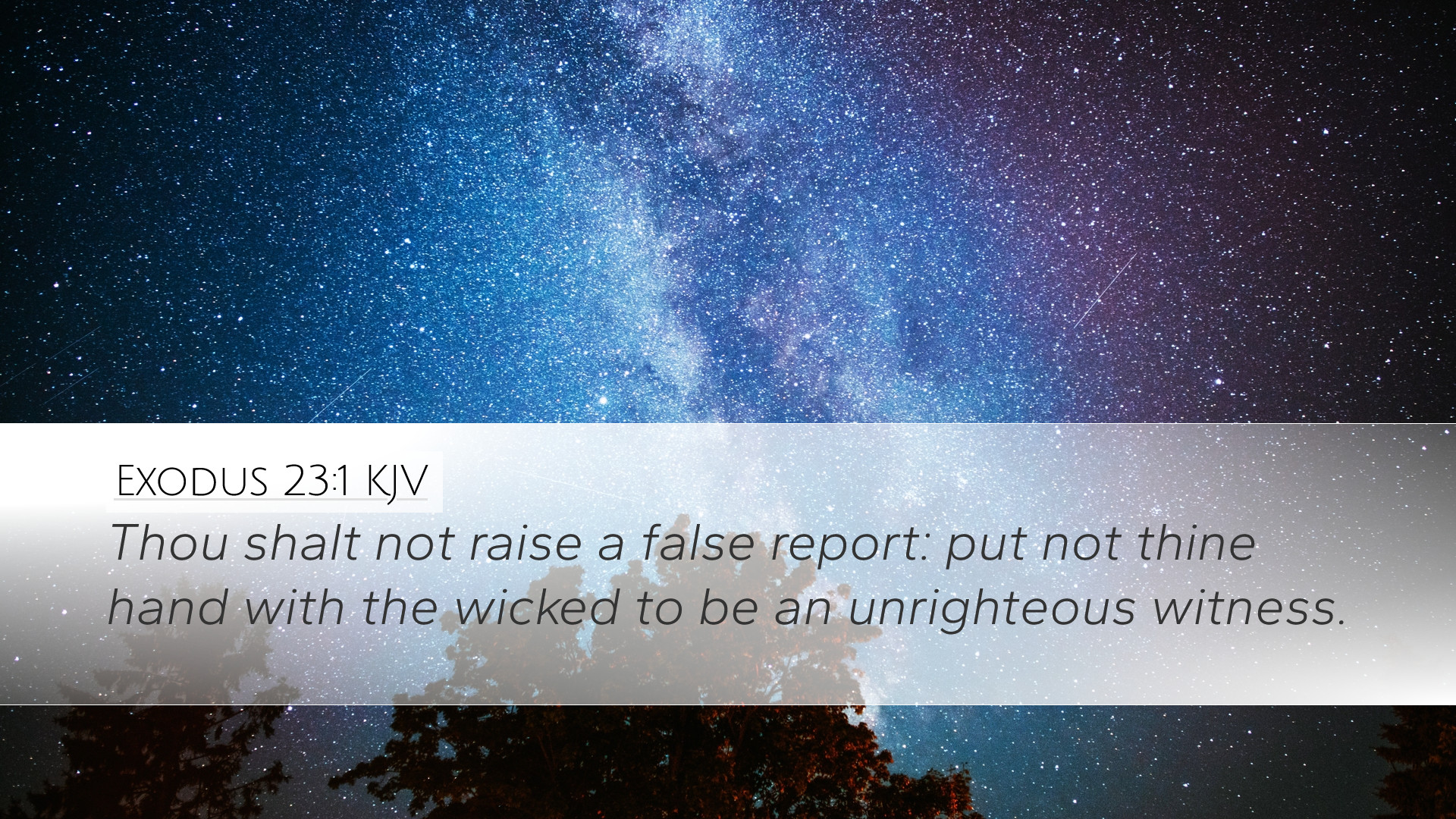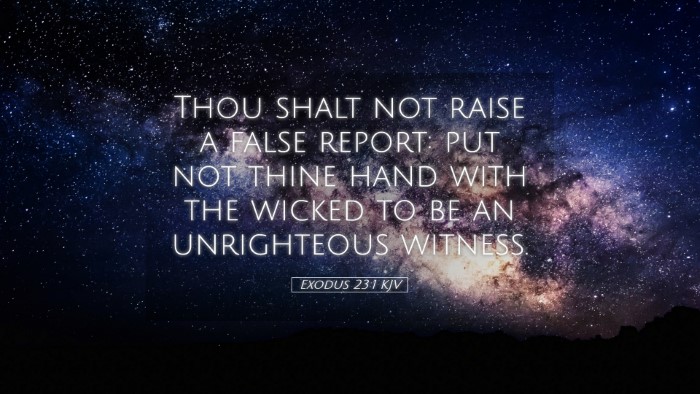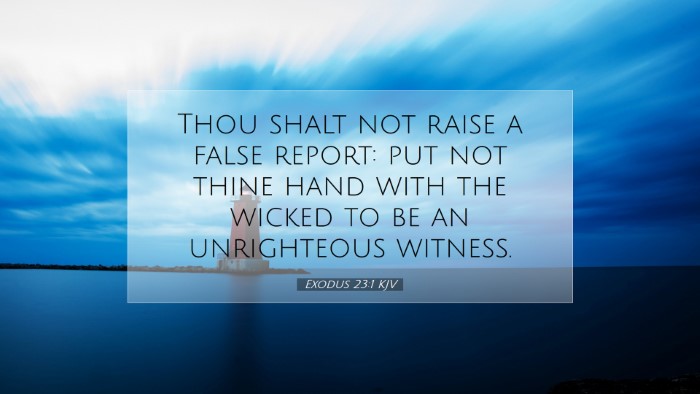Commentary on Exodus 23:1
Exodus 23:1 states:
"You shall not spread a false report. You shall not join hands with a wicked man to be a malicious witness."
Introduction
This verse carries profound implications regarding integrity, justice, and the community’s moral fabric. The command primarily emphasizes truthfulness, caution against the maligning of others, and the importance of righteous testimony. The insights provided by public domain commentaries from Matthew Henry, Albert Barnes, and Adam Clarke offer detailed reflections on this verse, revealing its theological and practical dimensions.
Thematic Analysis
1. Prohibition of Falsehood
Matthew Henry provides a clear admonition against spreading false reports. He emphasizes the severity of misrepresentation and deceit within the community, highlighting that it undermines trust and harmony. Henry elaborates that falsehood not only impacts the individual being maligned but also corrupts the moral standing of society as a whole. The gravity of this instruction is made evident through the understanding that God values truth, and it reflects His character.
2. The Dangers of Association with Wickedness
Albert Barnes articulates that the second part of the verse discourages collusion with the wicked. Barnes remarks that being a "malicious witness" does not only refer to lying but also to the conscious decision to join forces with evil for the sake of personal gain. He elucidates that in ancient Israelite society, where communal relationships were paramount, participating in injustice could severely disrupt societal norms and lead to widespread repercussions.
3. The Pursuit of Justice
Adam Clarke expands upon the implications of justice in this verse. He posits that the call to avoid false testimony is directly linked to the pursuit of justice. In the context of courts and legal proceedings, Clarke underscores that truthful testimony is essential for fair judgments. He emphasizes the significance of being a reliable witness, which contributes to the integrity of judicial systems and the establishment of righteousness in the public square.
Implications for Today’s Context
4. Ethical Standards in Society
The insights from these commentaries lay a foundation for understanding how this ancient text applies to contemporary ethics. In a world rife with misinformation, the directive not to spread falsehood becomes increasingly relevant. Modern-day readers, especially pastors and theologians, are reminded that the pursuit of truth must undergird their ministries and communicate a clear message against the moral relativism that can lead to destructive societal trends.
5. Community Responsibility
Furthermore, the community's collective responsibility to uphold honesty and justice is echoed throughout these reflections. The exhortation to avoid malicious collusion serves as a reminder that one’s moral choices contribute not just to personal character but to the overall health of the community. Pastors and theological educators have a vital role in teaching these principles and helping congregations foster environments in which truth and justice thrive.
6. Spiritual Dimension
From a spiritual standpoint, as indicated by both Clarke and Barnes, the moral fabric established by truthfulness and justice is directly linked to one's relationship with God. Dishonesty and wickedness are seen as transgressions against God's command and His character. This insight calls for repentance and a commitment to a life of integrity, reflecting the heart of God in the world.
Conclusion
Exodus 23:1 provides timeless principles regarding truth, justice, and community ethics. The combined reflections from renowned biblical commentators serve as a potent reminder for all believers to cultivate honesty in their lives, resist complicity with malice, and champion justice within their spheres of influence. As pastures of truth and justice flourish, they yield communities that reflect God's righteousness and glory.


